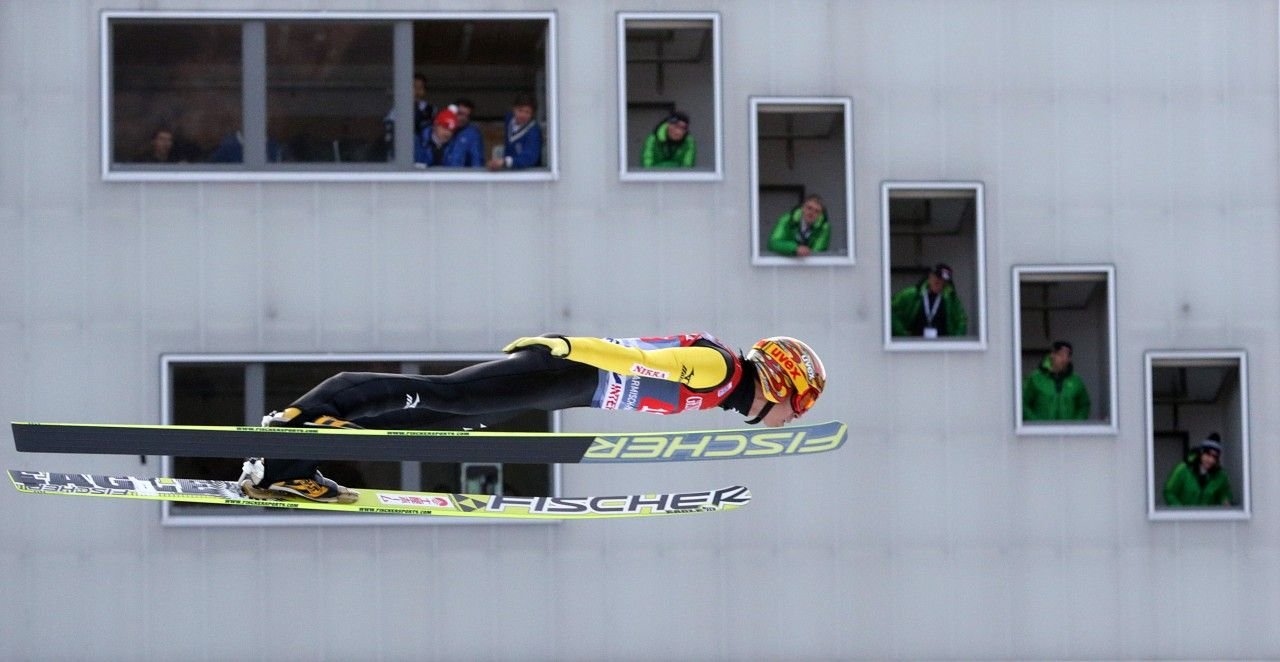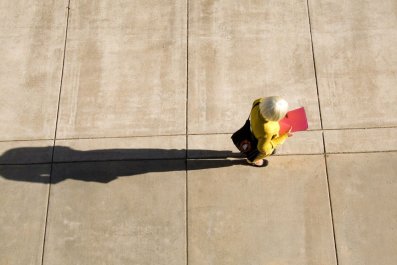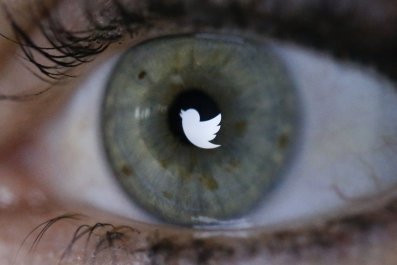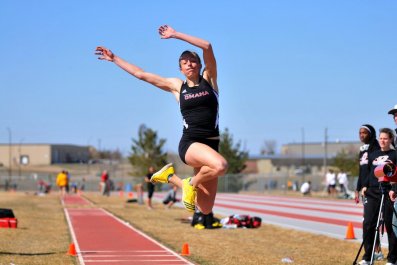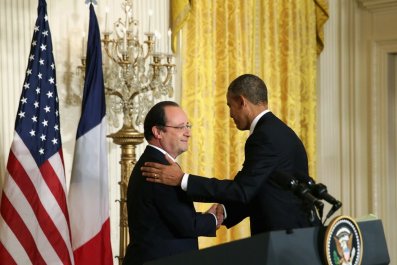Technology will soon make officials at high-level sports events as obsolete as elevator operators, their skill set as useful as knowing how to make a wood tennis racket. Referees, umpires, judges, linesmen - they're all toast, in every sport, some sooner than others. We'll just keep a couple zebras on the ice in hockey to break up fights.
The Sochi Olympic Games hasn't yet given us a global officiating scandal, like when a French judge fixed the pairs figure skating competition in the 2002 games, but give it time. Officials are highly trained and usually right, but they are human, and so they are sometimes wrong (or corrupt). And that's the problem. Ideally, officiating in sports is never wrong and always fair.
We've tried to close that gap in the past decade by supplementing flawed humans with video replays and a few other gadgets. But it's time to admit that technology will soon do a better job by itself. And we're not talking about science-fiction-y stuff - many of these capabilities are dawning now, and companies are working on more. "Breakthroughs in just the last decade make it far more feasible to replace human senses than ever before," says Eric Brynjolfsson, a professor at the Massachusetts Institute of Technology and co-author of The Second Machine Age, about the impact of computers that can start to think like we do. In this new age, Brynjolfsson says, sports officials will be "in the bull's-eye of automation."
It's not like this has never happened before. Go back long enough, and officials stood at the finish line at the speed-skating rink and timed the race with stopwatches. Now the timing for almost every high-level race of any kind - skating, running, swimming - is automated. We take that for granted. Works much better than humans.
Now just consider the panoply of technologies pushing into sports. The NBA this year put SportVU into every arena. The system of cameras and computers tracks every player and the ball three times a second and records all that data. It essentially watches and remembers the entire game. The NHL and top world soccer leagues are considering adopting it.
Major League Baseball has installed PITCHf/x, made by Sportvision, in every stadium. PITCHf/x uses cameras and computers to track the velocity, movement, spin and location of every pitch, which means it can identify balls and strikes with certainty in real time.
All the major tennis tours are using a system called Hawk-Eye, which tracks the ball and records where every ball bounces, and can instantly determine whether a 100 mph serve lands in or out.
Soccer in Europe is pushing hard to adopt a system of high-speed cameras and computers that can tell whether the ball has crossed the goal line. The maker of one such system, GoalControl, boasts that the cameras could track players and the ball and make accurate calls on handballs, not to mention doing better than human referees on soccer's most notoriously troublesome call, offside.
The technology will keep getting more interesting. I recently met with someone at a New York start-up called Tactonic that has developed a cheap way to put touch sensors into very large surfaces. These surfaces can be so sensitive they could tell one player from another by registering shoe shape and weight. The technology raises the idea that the NFL could put sensors under an entire football field and capture where every foot and the ball lands, instantly making out-of-bounds calls even if camera angles are obscured by a scrum of 300-pound linemen.
The binary calls are the easy ones for technology to take over. In or out. Ball or strike. Safe or out. There's no judgment required. It is or it isn't.
Tennis should never need an on-court official again. Baseball is almost all binary - the only judgment calls I can think of are balks and check swings. Technology already calls strikes, balls and foul balls better than umpires. As for calls on the base paths, put a Tactonic-like sensor in each base, a wireless sensor in the ball and every glove, and software that can coordinate and instantly analyze the signals, and you'd likely get a nearly foolproof system. Baseball probably just needs one guy behind the catcher, and his most important job would be to dust off home plate.
What about sports where the officiating is largely judgment calls? Can a computer call roughing in hockey? A foul in basketball? And what about sports that are almost completely subjective, like figure skating?
This is where the kind of computing Brynjolfsson writes about comes into play. In 2011, IBM's Watson computer beat two human champions at Jeopardy!. Watson is a new cognitive system that can take in enormous amounts of data, learn from it and make complex judgments in a split second. Watson is among the first of its kind, which means these things will get much more powerful.
So imagine a next-generation Watson absorbing floods of data generated by motion-capturing systems like SportVU or GoalControl, and learning from it - learning how the game moves and the physics at play when the human referees call penalties or fouls. (Yep, in this scenario, today's human refs would basically be training their replacements - the computers would learn from watching what they do.)
And then, "imagine the day when a combination of officials who write the rules and programmers who design machines work together" - and turn the rules into software, Brynjolfsson says. We're not yet close to building a computer ref that can make judgment calls, he notes, but the trend lines say it's coming.
If computers can learn ice hockey, they'll be able to learn figure skating. Skating's International Judging System, put into place after the 2002 scandal, already makes the judging less subjective and more rules-based - just the way computers like it. Motion-capture plus computer learning plus rules-based judging built into software should lead to automated, fair, emotionless, nation-less figure skating scores.
Of course, the whole idea can seem creepy and authoritarian. Getting a tripping penalty in hockey could feel like getting a speeding ticket in the mail from a traffic camera. And what are the fans going to boo? Growing up in Binghamton, N.Y., I'd go to minor league Broome Dusters hockey games, and a call against the home team would start our very non-PC fans chanting, "The ref beats his wife!"
What insult would outraged fans chant at a computer? Maybe: "The ref runs on Windows!"


